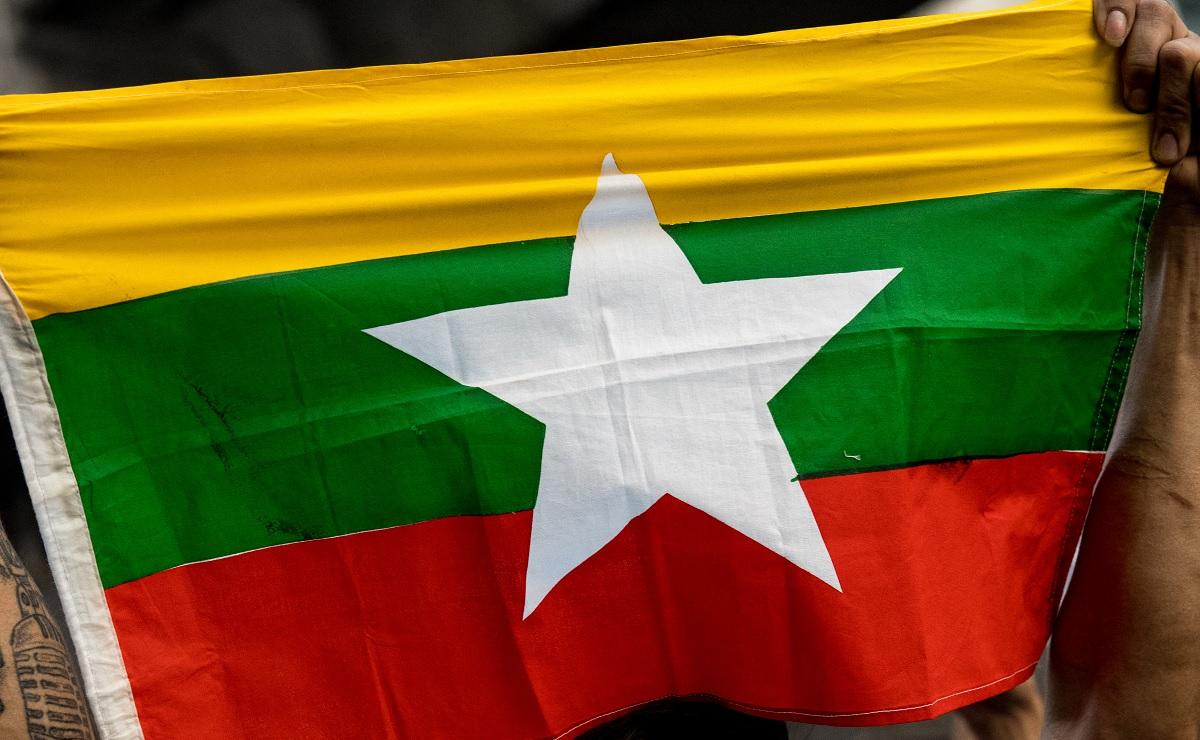Myanmar executes four democracy activists, drawing condemnation and outrage

Myanmar's military junta has executed four democracy activists accused of helping to carry out "terror acts", it said on Monday, sparking widespread condemnation of the Southeast Asian nation's first executions in decades.
Sentenced to death in closed-door trials in January and April, the four men had been accused of helping militias to fight the army that seized power in a coup last year and unleashed a bloody crackdown on its opponents.
Myanmar's National Unity Government (NUG), a shadow administration outlawed by the ruling junta, condemned the executions and called for international action against the junta.
"Extremely saddened...condemn the junta's cruelty," Kyaw Zaw, the spokesman of the NUG president’s office, told Reuters in a message. "The global community must punish their cruelty."
Among those executed were democracy figure Kyaw Min Yu, better known as Jimmy, and former lawmaker and hip-hop artist Phyo Zeya Thaw, the Global New Light of Myanmar newspaper said.
Kyaw Min Yu, 53, and Phyo Zeya Thaw, a 41-year-old ally of ousted Myanmar leader Aung San Suu Kyi, lost their appeals against the sentences in June. The two others executed were Hla Myo Aung and Aung Thura Zaw.
"These executions amount to arbitrary deprivation of lives and are another example of Myanmar’s atrocious human rights record," said Erwin Van Der Borght, regional director of rights group Amnesty International.
"The four men were convicted by a military court in highly secretive and deeply unfair trials. The international community must act immediately as more than 100 people are believed to be on death row after being convicted in similar proceedings."
Thazin Nyunt Aung, the wife of Phyo Zeyar Thaw, said she had not been told of her husband's execution. Other relatives could not immediately be reached for comment.
"My heart goes out to their families, friends and loved ones and indeed all the people in Myanmar who are victims of the junta's escalating atrocities," the UN special rapporteur on human rights in Myanmar, Tom Andrews, said in a statement.
The men had been held in the colonial-era Insein prison and a person with knowledge of the events said their families visited it last Friday. Only one relative was allowed to speak to the detainees via the Zoom online platform, the source added.
Myanmar's state media reported the executions on Monday and junta spokesman Zaw Min Tun later confirmed the executions to the Voice of Myanmar. Neither gave details of timing.
Previous executions in Myanmar have been by hanging.
An activist group, the Assistance Association of Political Prisoners (AAPP), said Myanmar's last judicial executions were in the late 1980s.
International condemnation
Last month junta spokesman Zaw Min Tun defended the death penalty, saying it was justified and used in many countries.
"At least 50 innocent civilians, excluding security forces, died because of them," he told a televised news conference.
"How can you say this is not justice?" he asked. "Required actions are needed to be done in the required moments."
Cambodian Prime Minister Hun Sen, chair of the Association of Southeast Asian Nations (ASEAN), appealed in a letter in June to junta leader Min Aung Hlaing not to carry out the executions, relaying deep concern among Myanmar's neighbors.
The junta has condemned foreign statements about the execution orders as "reckless and interfering".
Myanmar has been in chaos since last year's coup, with conflict spreading nationwide after the army crushed mostly peaceful protests in cities.
"For more than a year now, Myanmar’s military authorities have engaged in extrajudicial killings, torture and a whole gamut of human rights violations," Van Der Borght added.
"The military will only continue to trample on people’s lives if they are not held accountable."
The AAPP says more than 2,100 people have been killed by the security forces since the coup. The junta says that figure is exaggerated.
The true picture of violence has been hard to assess as clashes have spread to more remote areas where ethnic minority insurgent groups are also fighting the military.
Last Friday, the World Court rejected Myanmar's objections to a genocide case over its treatment of the Muslim Rohingya minority, paving the way for the case to be heard in full.
The latest executions close off any chance of ending the unrest in the country, said Myanmar analyst Richard Horsey, of the International CRISIS group.
"Any possibility of dialogue to end the crisis created by the coup has now been removed," Horsey told Reuters.
"This is the regime demonstrating that it will do what it wants and listen to no one. It sees this as a demonstration of strength, but it may be a serious miscalculation."
New York-based Human Rights Watch said the executions aimed to chill the anti-coup protest movement.
"European Union member states, the United States, and other governments should show the junta that there will be a reckoning for its crimes," said Elaine Pearson, the group's Asia director.
"They should demand immediate measures, including the release of all political prisoners, and let the junta know the atrocities it commits have consequences." —Reuters




